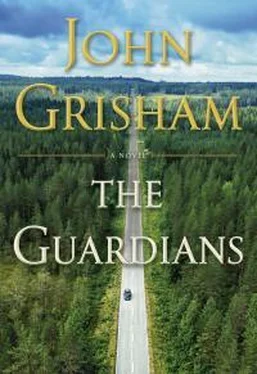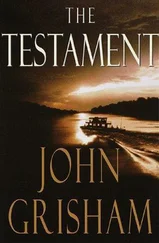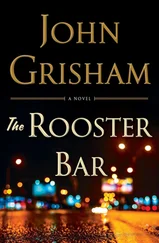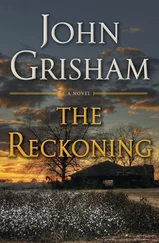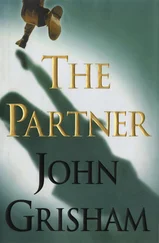Two blocks away on a side street, a drug addict named Carrie Holland saw a black man running away from the area. He appeared to be carrying a stick or something, she wasn’t sure. Quincy is black. Seabrook is 80 percent white, 10 percent black, 10 percent Hispanic. Carrie could not identify Quincy but swore he was of the same height and build as the man she saw.
Quincy’s court-appointed lawyer succeeded in getting a change of venue, and the trial took place in the county next door. It was 83 percent white. There was one black person on the jury.
The case revolved around the flashlight found in Quincy’s trunk. A bloodstain-analysis expert from Denver testified that given the location of the body, and the probable line of fire from the shotgun, and the height of both the deceased and the assailant, and the sheer volume of blood found on the walls, floor, bookshelves, and credenza, he was certain that the flashlight was present at the shooting. The mysterious specks on its lens were described as “back spatter.” They were too small to be tested, so there was no match with Keith’s blood. Undaunted by this, the expert told the jury that the specks were definitely blood. Remarkably, the expert admitted that he had never actually seen the flashlight but had examined it “thoroughly” by studying a series of color photos taken by the investigators. The flashlight disappeared months before the trial.
Diana testified with certainty that her husband knew his ex-client well and was terrified of him. Many times he confided to her that he was afraid of Quincy, and even carried a handgun at times.
Carrie Holland testified and did everything but point a finger at Quincy. She denied she was being coerced into testifying for the prosecution, and denied she had been offered leniency on a pending drug charge.
While Quincy was awaiting trial, he was moved to a regional jail in Gainesville. No explanation was given for the transfer. He spent a week there and was returned to Seabrook. However, while away, he was put in a cell with a jailhouse snitch named Zeke Huffey who testified that Quincy had boasted of the killing and was quite proud of himself. Huffey knew the details of the murder, including the number of shots fired and the gauge of the shotgun. To spice up his testimony, he told the jury that Quincy laughed about driving to the coast the following day and tossing the shotgun into the Gulf. On cross-examination, Huffey denied cutting a deal with the prosecutor for leniency.
The investigator from the state police testified that none of Quincy’s fingerprints were found at the scene, or on the meter box behind the office, and was allowed to speculate that “the assailant was probably wearing gloves.”
A pathologist testified and presented large color photographs of the crime scene. The defense lawyer objected strenuously, claiming the photos were highly prejudicial, even inflammatory, but the judge allowed them anyway. Several of the jurors appeared to be shocked by the vivid images of Keith covered in blood with most of his face missing. The cause of death was obvious.
Because of his criminal record and other legal problems, Quincy did not take the stand. His lawyer was a rookie named Tyler Townsend, court-appointed and not yet thirty years old. The fact that he had never defended a capital murder client would have normally raised issues on appeal, but not in Quincy’s case. His defense was tenacious. Townsend attacked every witness for the State and every piece of evidence. He challenged the experts and their conclusions, pointed out the flaws in their theories, and mocked the sheriff’s department for losing the flashlight, the most important piece of evidence. He waved its color photos in front of the jury and questioned whether the specks on the lens were actually blood. He sneered at Carrie Holland and Zeke Huffey and called them liars. He suggested to Diana that she was not the innocent widow and made her cry on cross-examination, which didn’t require much effort. He was repeatedly cautioned by the judge but remained unfazed. So zealous was his defense that the jurors often could not mask their contempt for him. The trial became a brawl as young Tyler rebuked the prosecutors, disrespected the judge, and harangued the State’s witnesses.
The defense offered an alibi. According to a woman named Valerie Cooper, Quincy was with her at the time of the killing. She was a single mother who lived in Hernando, an hour south of Seabrook. She had met Quincy in a bar and their romance had been on and off. She claimed to be certain that Quincy had been with her, but on the stand she was intimidated and not credible. When the prosecutor brought up a drug conviction, she broke down.
In his passionate closing argument, Tyler Townsend used two props—a 12-gauge shotgun and a flashlight—and argued that it would have been almost impossible to fire two shots at the target while holding both. The jurors, mostly from rural areas, seemed to understand this, but it made little difference. Tyler was in tears as he begged for a not-guilty verdict.
He didn’t get one. The jury wasted little time convicting Quincy of the murder. His punishment proved more complicated, as the jury got hung. Finally, after two days of intense and heated debate, the lone black held out for life with no parole. The eleven whites were disappointed that they could not return a death verdict.
Quincy’s appeals ran their course and his conviction was unanimously affirmed at every level. For twenty-two years he has maintained his innocence, but no one is listening.
Young Tyler Townsend was devastated by the loss and never recovered. The town of Seabrook turned against him and his fledgling law practice dried up. Not long after the appeals were extinguished he finally gave up and moved to Jacksonville, where he worked as a part-time public defender before pursuing another career.
Frankie found him in Fort Lauderdale, where he seems to be living a pleasant life with a family and a good business developing shopping centers with his father-in-law. Approaching him will require care and forethought, something we do well.
Diana Russo never returned to Seabrook, and, as far as we know, never remarried. But we are not certain. Working with a private security group that we hire occasionally, Vicki found her a year ago living on the island of Martinique. For another chunk of money, our spies can dig deeper and give us more. For the moment, though, we can’t justify the money. Trying to have a chat with her would be a waste of time.
Exonerating Quincy Miller is our goal. Finding the real killer is not a priority. To succeed at the former, we must unravel the State’s case. Solving the crime is someone else’s business, and after twenty-two years you can bet no one is working on it. This is not a cold case. The State of Florida got a conviction. The truth is irrelevant.
6
Quincy has spent the last eight years at a prison called Garvin Correctional Institute near the rural town of Peckham, about an hour north of the sprawl of Orlando. My first visit here was four months ago when I came as a priest doing prison ministry work. I wore my old black shirt and collar then. It’s amazing how much more respect I get as a priest than as a lawyer, at least around prisons.
I’m wearing the collar again today, just to screw with them. Vicki has done the paperwork and I’m officially on record as Quincy’s lawyer. The guard at the front desk studies the paperwork, studies my collar, has questions but is too confused to ask them. I surrender my cell phone, get cleared through the scanners, and then wait an hour in a dingy holding room where I flip through tabloid magazines and wonder once again what the world is coming to. They finally fetch me and I follow a guard out of the first building and along a sidewalk lined with fencing and razor wire. I’ve seen the inside of so many prisons I’m no longer shocked by their harshness. In so many awful ways they’re all the same: squat concrete buildings with no windows, rec yards filled with men in matching uniforms killing time, scowling guards reeking of contempt because I’m a trespasser there to help the lowlifes. We enter another building and walk into a long room with a row of cubicles. The guard opens a door to one and I step inside.
Читать дальше
